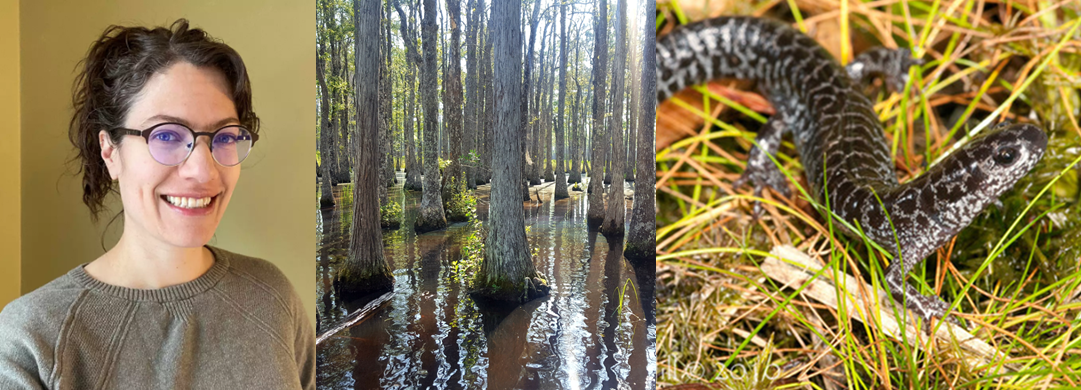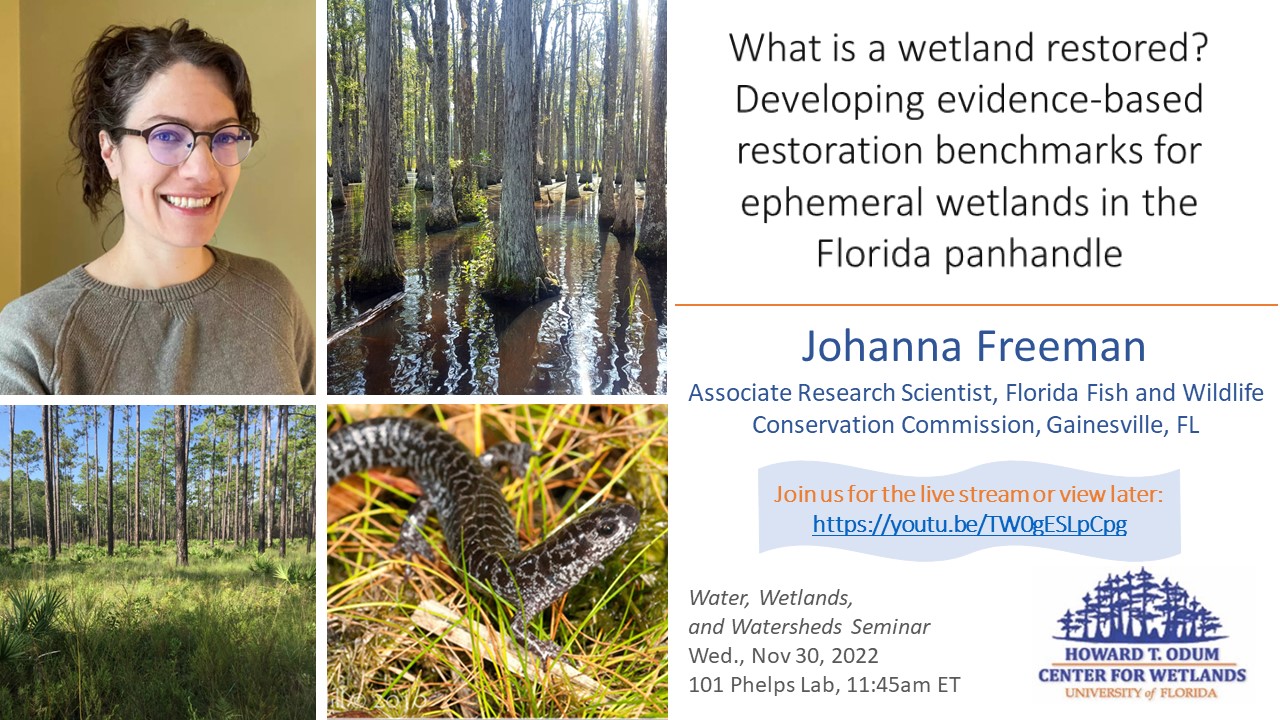 Johanna Freeman, Associate Research Scientist, Florida Fish and Wildlife Conservation Commission, Gainesville, FL
Johanna Freeman, Associate Research Scientist, Florida Fish and Wildlife Conservation Commission, Gainesville, FL
Join us for the livestream November 30, 11:45am ET: https://youtu.be/TW0gESLpCpg
(Please visit our YouTube channel main page for the stream if there are any issues with the direct link.)
Abstract
Since 2016, the Florida Fish and Wildlife Conservation Commission has been coordinating a multi-agency ephemeral wetland restoration initiative in the Florida panhandle. The restoration efforts are aimed at improving the suitability of wetlands for amphibian occupancy, through the reduction of shrub cover and promotion of herbaceous cover. Herbaceous cover is a correlate of ephemeral wetland occupancy for many amphibian species. In addition to providing nesting and larval cover, herbaceous plants create a fire-carrying fine fuel structure that maintains longer hydroperiods, which allows more types of amphibians to complete their life cycles. Direct amphibian occupancy metrics are not likely to be informative as short-term benchmarks for vegetation treatment effectiveness, because amphibian responses to restoration are influenced by many other external factors that may influence re-colonization (e.g. presence of source populations, surrounding habitat matrix, and interannual rainfall variability). Instead, various forms of herbaceous cover (i.e., overall herbaceous cover, facultative wetland plant cover, and obligate wetland plant cover)—which are relatively easy to measure and show measurable short-term responses (i.e. <10 years) to restoration treatments—have been identified as potential habitat proxy variables. FWC is in the process of developing a quantitative framework for vegetation-based wetland restoration benchmarks based on a dataset of 100 wetlands sampled over the past 7 years, and is seeking feedback from wetland scientists on the draft framework.
Bio
Johanna Freeman leads the Terrestrial Habitat Research team for the Fish and Wildlife Research Institute, a division of the Florida Fish and Wildlife Conservation Commission. She has a BS in Natural Resources from Cornell University, an MS in Interdisciplinary Ecology from the University of Florida, and a PhD in Forest Resources and Conservation from the University of Florida. She has been studying the ecology and conservation of Florida’s terrestrial ecosystems for 15 years. Her research focuses on integrating fire ecology, plant community ecology, and landscape ecology to inform and improve conservation management.
Postcard
